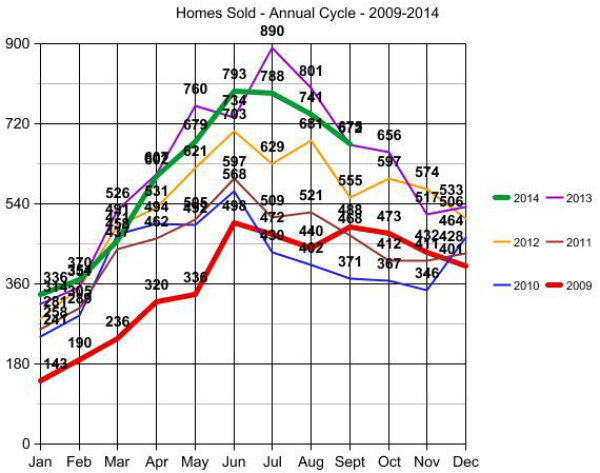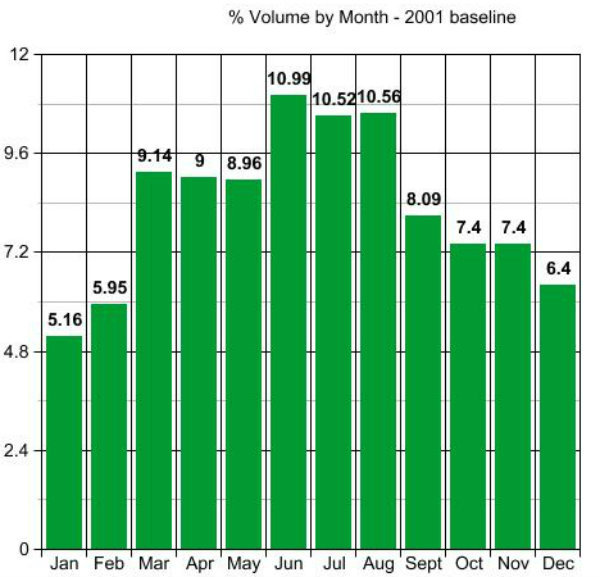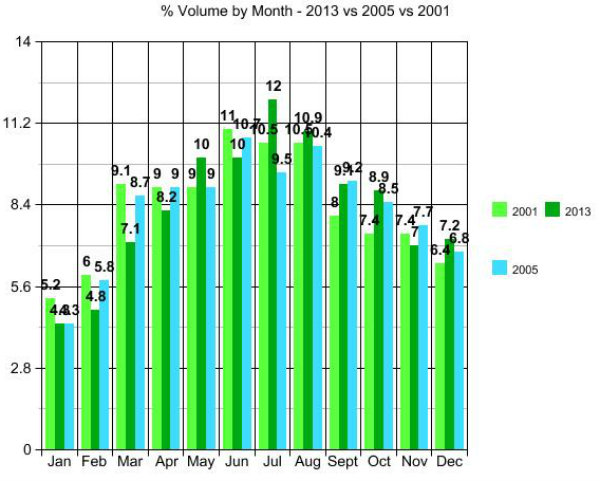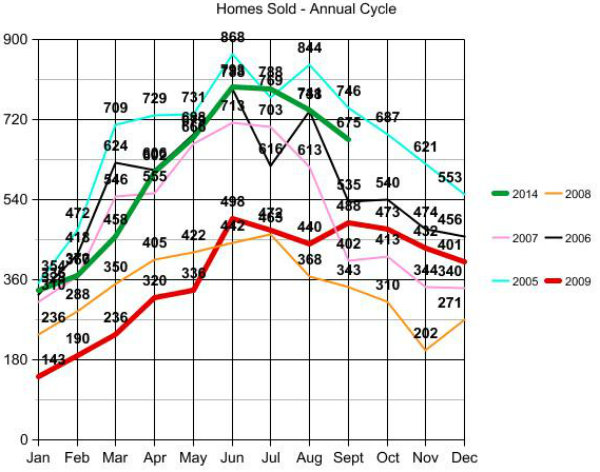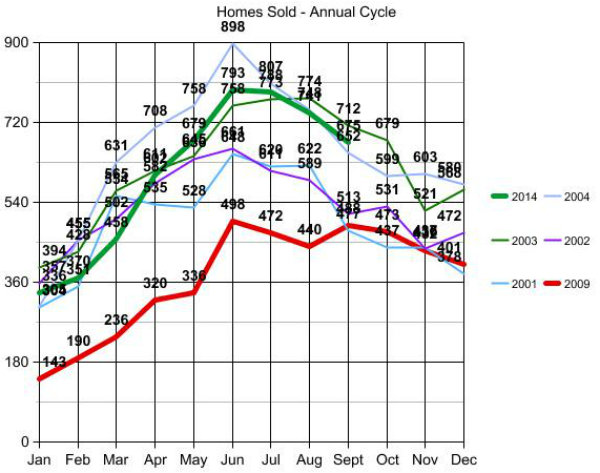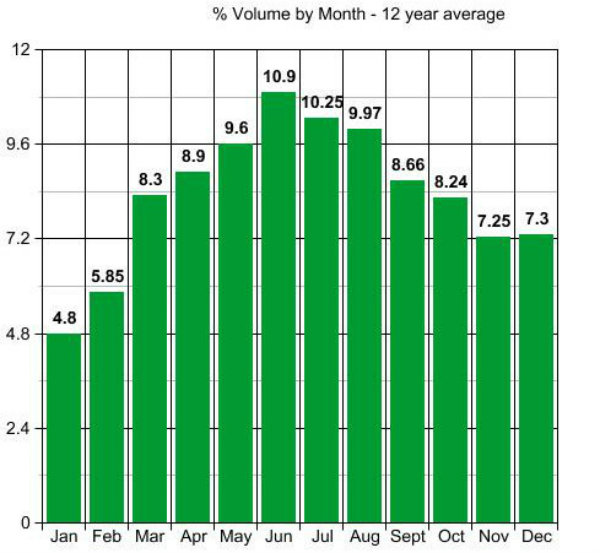Bill Gassett wrote a blog post a couple of days ago titled “Things Buyers Do That Real Estate Agents Hate”. I happen to know and like Bill and would not normally engage in a “correction”, point-counterpoint post with him. However one of my clients posted Bill’s article on his facebook page with this tag “Ardell DellaLoggia? Thoughts?”
Since my thoughts are more than will fit in a facebook comment…I am writing the full answer here. My facebook comment answer was:
I like Bill…and his piece is somewhat right…but for ALL the WRONG reasons. The only thing I “HATE” that a client does, is something that is against their own best interests OR anything that hints of fraud or discrimination. I would never HATE something one of my clients may do because of how that might impact me vs them or the public at large. Writing a point counter point to Bill’s piece…be back with the link when I am done.
Bill Gassett’s post has 13 points and I will use his point captions…but with my answer vs his. To compare to his answers…read his post in conjunction with this one.
Things Real Estate Agents Wish Buyers Wouldn’t Do
1. Buyer Calls Listing Agents On Their Own
Even MORE “wrong” than the buyer doing that is the real estate industry still using the term “Listing Agent” vs Agent for the SELLER. The main reason a buyer should not call the Seller’s Agent is the ONLY job of that agent for the seller is to answer your questions, and listen to what you say, to and for the seller’s benefit and not yours. In multiple offer situations, what the buyer may have revealed about themselves to the Agent for the Seller during that call could cause their offer to not be accepted…even if they would otherwise have had “the winning offer”. It’s like asking your wife’s attorney questions during a divorce. After warning you that they represent the other party…their job becomes to use what you are saying to THEIR client’s advantage, if you continue to talk after they ask you not to do that. Perhaps we need a miranda-type warning:
“I represent the seller and not you. Anything you say can and will be used to further my client’s best interest and not yours.”
2. Buyer Asks the Listing Agent to Show Them the Home
Same answer as 1 except even worse. Now not only do your words help further the seller’s best interest, but your general demeanor and body language as well. Not a good idea for a lightweight to get into the ring with Joe Frazier.
3. Ask Real Estate Agents to Show Them Properties Before They Are Pre-approved
It does not serve a buyer’s best interest for them to succumb to multiple and unwarranted credit checks needed for a pre-approval, because the act itself will lower their credit score. There are many contradictory versions of whether or not and when that is true. But a homebuyer’s loan costs and mortgage interest rate, when they do purchase, is directly tied to that credit score. If they are shopping for an agent while viewing 3 to 5 properties with different agents before they are ready to choose an agent and property, then getting 3 to 5 pre-approvals through those agent’s many and varied preferred lenders could seriously harm the buyer for years to come. EVERY real estate agent learns how to qualify a buyer as part of their required education for licensing. There is no reason an agent can’t qualify a buyer well enough to show them enough properties to decide if they are well suited to working with one another, usually 1 to 3 properties. The potential damage to the buyer has to outweigh the potential damage to the agent in this case. If the buyer tells me they have worked at Microsoft or Google for 5 to 7 years and have a salary of $200,000 and a credit score of 760 and want to look at houses costing $500,000…I don’t need a lender to run a credit check that I believe will lower the buyer’s credit score by about 25 points. Many of my clients fit that scenario and are well qualified and are buying below their means. If I worked in an area where 9 out of 10 buyers who come to me can’t get a mortgage…I would feel differently. An agent needs to consider the harm to the buyer and not just protect themselves from “wasting their time”.
4. Buyer Asks to View Property Outside of their Price Point
This involves more than the buyer and the agent, as the main reason NOT to show properties outside of a buyer’s price point has more to do with licensing ethics and sellers. We as agents have “The Keys to the Kingdom”. Having access to enter people’s homes is a HUGE privilege that comes with a responsibility not to abuse that privilege. Since I have been in the business for almost 25 years, I can’t say that I have never had someone ask me to enter a $2 Million listing for “the fun of it”, as example. My answer is no because my access to people’s homes is to a given purpose and “fun” isn’t one of them. If there is an Open House, well that’s an open invite. But using my access key to enter someone’s home for other than the purpose of buying it…answer has to be no. The main reason I don’t like Bill Gassett’s answer vs mine is many agents do, and often, make appointments to see homes to value a home they are soon going to be listing. If the home is occupied, I don’t think it is right to do that unless I disclose to the seller that I am not there for the purpose of showing their home to a prospective buyer. But MOST agents do think seeing the home to help them list a competing home in the neighborhood IS a legitimate reason. When you think about the seller cleaning for you and leaving their home for you…you have to agree that for them to do that to help you do your job for a different seller, is clearly not OK…in my book.
5. Buyer Does Not Respect The Agent’s Time By Calling Last Minute
I don’t get this one at all because in a hot market we have to be very “Johnny Jump Up”. Anyone who doesn’t want to jump through hoops to get their client the house they want, just shouldn’t be in this business. Often “the early bird gets the worm” around here. Last Minute is really First Minute in a hot market. I can’t tell you how many times my client got the house they wanted because we were there “Johnny on the Spot” and the first offer in. To hell with respecting the agent’s “time” and schedule. Whatever makes the most sense for the client to achieve their objective is the ONLY respect factor in the room! End of Story.
6. Buyer Looks At Home 5 Times and Does Not Make an Offer
Thank God they stopped themselves from buying a home they didn’t want, I’d say. Really? If it takes 5 times for them to know they don’t want it…then 5 times it is! This is just ridiculous, Bill. Sorry, you know I like you, but Holy Caboley! I have in fact had a client or two say they were going to buy a house because they felt badly FOR ME if they didn’t because of all the time and work I had invested in the endeavor up to that point. I was aghast that they would put me before their family’s best interest. I love those people…but Oh My God! No!
7. Buyer Not Researching Where They Want To Live Before Asking Agent to Show Them Homes
Duh! Isn’t looking at a few homes in various areas part of that “research”? Another “I don’t “GET” what Bill is getting at…or I don’t agree. Hard to say which.
8. Buyer Makes Unjustified Low-ball Offers
That’s a tough one to answer as everyone’s definition of “unjustified” and “low-ball” is different. If the market has already proven by lengthy days on market that the asking price is the wrong asking price, then basically it’s time to ignore that asking price in the offer. There are too many considerations here. If the buyer and I decide the price is $100,000 over-priced, and that happens often, and it came on market at that price 5 minutes ago, and my clients really want the house at the correct price, then the strategy of how we get that house for them at the right price is very important. I get Bill’s point here, but if you accept that person as a client, then…well…if you don’t like the way the client is acting you need to help that client find an agent better suited to their needs. This may be a reason to drop a client or not accept them as a client in the first place. But you don’t get to continue a bad relationship. Once you view your client as “an unreasonable low-baller”…it’s time to part ways. Breach of relationship, I’d say. There’s another agent who might love that client…release them so they can find a more compatible agent to work with.
9. Buyer Wants To Make An Offer Contingent On The Sale Of Their Home
I have to quote Bill’s Opening words on this one ” Sellers are not going to accept an offer with a home sale contingency 99% of the time.” Another Duh! If you knew your client needed to sell before buying, and you took them to see homes they now want to buy with a home sale contingency…whose fault is that? The time to have this conversation is NOT after you brought them to see the house and now it’s time to write an offer and you don’t want them to have to sell their house first. Why did you bring them to a house they now love…and then tell them they can’t buy it? Mean…just mean. ALSO AND IMPORTANT if the forms are available to make a contingent offer…and they ARE…then guess what? It IS sometimes OK to make a contingent offer and sellers DO sometimes take them, for sure! Might have to buy new construction, as example, to do a contingent offer. But if your client needs to do a contingent offer…then you have to figure out how to make that work. If you can’t…then drop them so another agent who does know how to do that can help them achieve their goals.
10. Buyer Asks To Negotiate Items That Were Visible Prior To Inspection
Huh? If the house needs a new roof, and I could tell that before the inspection, the buyer can’t negotiate that as part of the Home Inspection Negotiation…why? That’s just wrong. Of course the buyer can negotiate items “that were visible prior to the inspection”. Why not?
11. Buyer Expects the Home To Be Perfect After the Inspection
Now I just feel like someone Turned Back Time. Who died and made the agent in charge of what is and isn’t a “reasonable” request? If it hinders their objective to ask and sometimes it does, then we have to figure out how to meet the buyer client’s needs without risking losing the house, if getting that house is the client’s primary objective. The buyer in escrow is protected from the seller viewing their request “unfavorably”. That is why we do the inspection when IN escrow vs at time of offer. In fact your #11 explains why your #10 makes perfect sense to you. You seem to be more worried about the other agent’s seller client than you are about your buyer client? Do you not have Buyer Agency where you work? You do. Take the seller’s agent hat off when representing a buyer please.
12. Work with a Buyer’s Agent for Months and then Buy a House Through a Different Agent at an Open House
I have never had that happen to me in 24 plus years, not with another agent. But one time about 22 years ago I had a buyer client who got cornered by a seller at a ForSaleByOwner Open House. It was kind of funny too. I was doing their Open House on the property they needed to sell in order to purchase. They called me all excited “We Just Bought a House!!!” They were so happy. Had already signed the contract with the seller who had contracts AT the Open House for buyers to sign. It took them a few minutes after telling me their great news to realize what happened. LOL! They were so happy…how could I not be happy for them? They started apologizing once they realized that I basically felt like they just punched me in the gut. But I told them that THEIR goals and happiness was truly my foremost consideration. It happened. I was truly happy for them. I picked myself up…dusted myself off…and proceeded to help them in any way I could. Now as to Bill’s tale of woe…yes…I have seen that happen to many other agents. Most of the time it is the agent’s fault. Sometimes it is the seller agent’s fault at the Open House just like that FSBO Seller in my example. Sometimes it is the Buyer’s Agent who was not realizing that it was a one sided relationship for way too long. In any case this is usually a “look in the mirror” problem and not the buyer’s fault.
13. Buyer Works With More Than One Agent
You really can’t marry the first frog you kiss. Most of my clients are committed at first contact because they are referred to me by friends and family who highly recommend me. But buying a home with an agent is a very personal thing, and without a good personal referral a buyer needs to try a few agents on for size before choosing one. Also…it is sometimes hard not to use more than one agent if you have two completely different geographic options. I don’t have that problem here in the Seattle Area, but I did when I worked in PA and people often made a choice between Yardley PA and Princeton NJ. No one agent could do both. Any agent should know if a buyer needs to use more than one agent to best serve their interests and should actually be recommending that they use more than one agent if that is what is needed. They should be the first to tell the buyer to do that if and when it is needed.
Again…not to pick on Bill Gassett here, and the ONLY reason I have gone through this point by point is because my client happened on Bill’s post and asked me for my thoughts. I saw no way to do that without covering all of the points…and to do that on facebook where my client asked the question…well, too long. So I am posting a link to this post there now.


